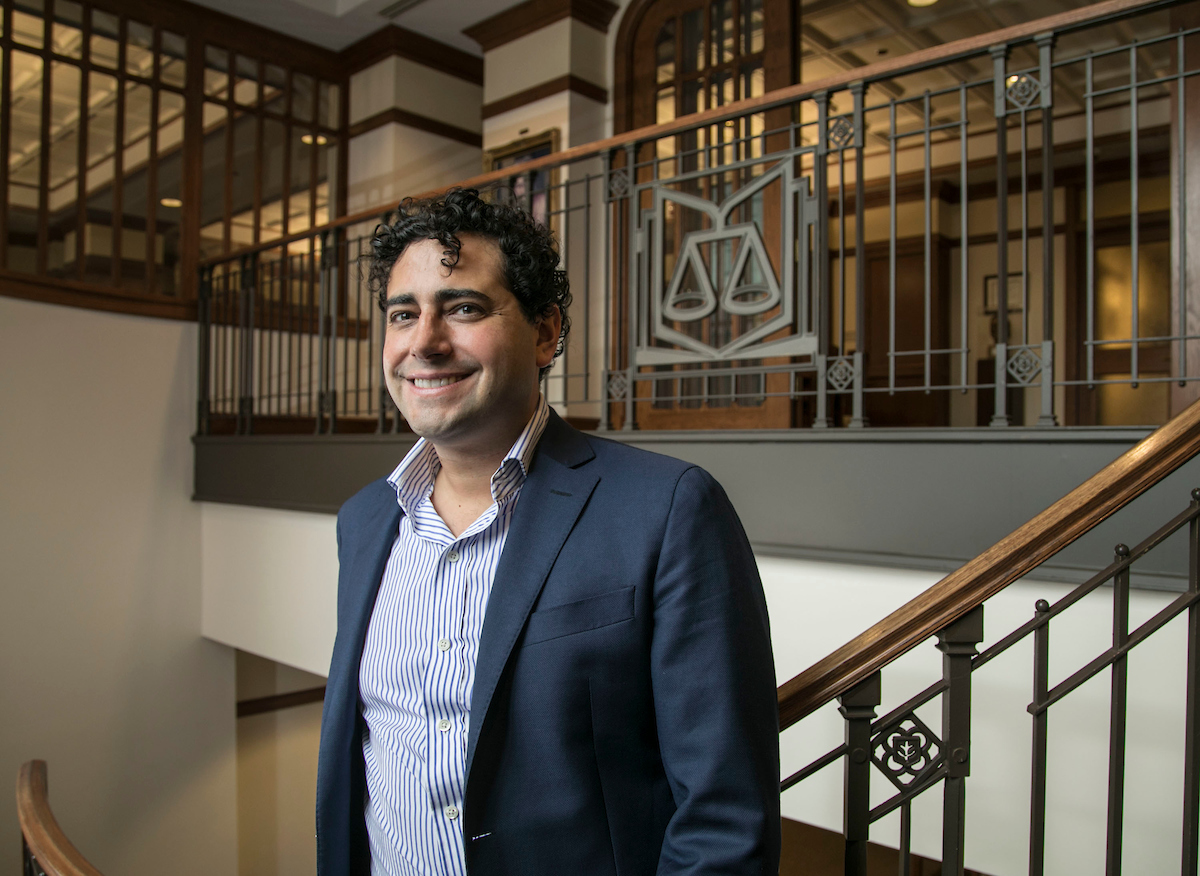 Daniel Morales is a scholar and theorist of immigration law who joined DePaul in 2011. (DePaul University/Jamie Moncrief)
Daniel Morales is a scholar and theorist of immigration law who joined DePaul in 2011. (DePaul University/Jamie Moncrief)
For the last 10 years, Daniel Morales, a professor in the College of Law, has focused his research on immigration law and policy in the United States. Read on to learn about the benefits of studying law and about some of the issues regarding immigration policy in today's political climate.
Beyond becoming a lawyer, what are the benefits of studying law?
Law school is a fairly rigorous education. Not only do you learn to analyze and interrogate arguments, but also you learn to represent arguments that you may not necessarily agree with on behalf of others. The work involved in studying law exercises the critical imagination in a way I think is increasingly rare in undergraduate education.
Where does your interest in immigration law stem from?
I grew up outside of Washington D.C., which obviously is a community centered around discussions of law and politics. I always had an interest in political affairs and public policy. I was one of those people who just always knew they wanted to go to law school.
For the last 10 years I've written about immigration law, particularly about immigration law and politics. This interest sparked while I was representing asylum clients during law school and later during my time as an attorney in Chicago. There was a big march about 10 years ago for undocumented immigrants. That demonstration made me think about the 11 million undocumented people in the United States, considered "illegal" by some, and what that means from a legal and political perspective.
For example, my most recent article looks at the relationship between white nationalism and immigration policy. These are things I and others in the field have been thinking about for a long time, but have emerged as something very salient in public conversation over the last few years.
Can you talk about your upcoming research project?
The United States has many unique immigration rules. One is how we grant birthright citizenship to the children of undocumented citizens. Another unique aspect of policy focuses on family unification - a lot of visas are granted based on relationships people have to citizens and legal permanent residents.
In analyzing historical features of American immigration policy, I want to ask if and how we should change immigration rules given the decline in social mobility over the last 50 years. There's a lot of research that shows making it from the bottom in the United States income hierarchy to the top is now harder here than in many places in Europe. Part of our previous success in integrating immigrants was because of our high level of social mobility.
I anticipate arguing that the rules should not change - that the problem actually has nothing to do with immigration, and that we need to think about ways to rectify social mobility rather than use immigration as a marginal tool to move the needle on economic justice. I believe there needs to be a defense of that position, which is what I'll be thinking and writing about over the next year or so.
Have public discussions about immigration influenced your teaching?
Yes and no. Of course I want my classes to be relevant, but there are always basic skills crucial in law school that we need to get across. I think it's certainly piqued people's interest. Our immigration law classes are pretty well enrolled this semester. Immigration law is in the public eye a lot, but it's still an up-and-coming legal field. However, because of the country's current political climate, it's starting to become an object of more concern on law faculties.
In general, I think it's a good time for people to learn about our country's immigration history. To reflect on their own ancestry and position as former immigrants or forced migrants. It's important to think about and be mindful of that fact as we consider these political and ethical questions as citizens.